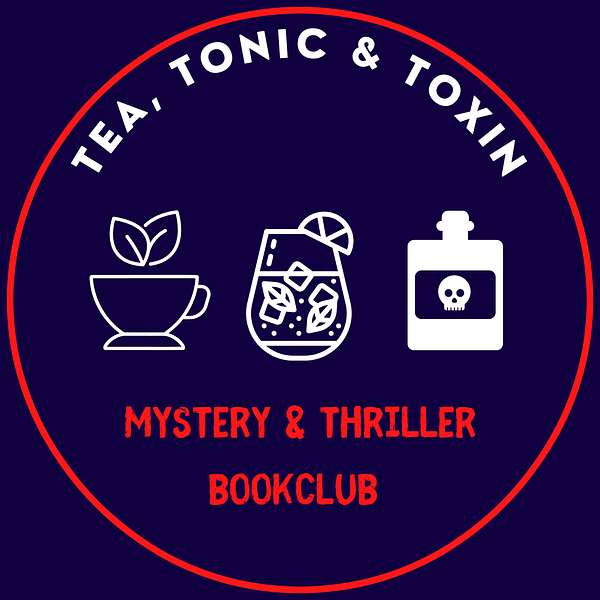
Tea, Tonic & Toxin
Tea, Tonic & Toxin
The Moonstone, Part 1
Tea, Tonic, and Toxin is a book club and podcast for anyone who loves mysteries and detective stories. We began with Edgar Allan Poe’s Dupin stories, Dickens’ Bleak House, and Wilkie Collins’ The Woman in White. Next up: Collins’ 1868 novel, The Moonstone.
This masterpiece includes a stolen Indian gem with a bloody past, plot twists, red herrings, a small circle of suspects, and a couple amazing detectives. It’s a serious page-turner.
T. S. Eliot described The Moonstone as the “first … and greatest of modern English detective novels.” The story includes several features of contemporary detective fiction and helped establish many of the genre’s conventions.
- The Moonstone was originally published in 32 weekly parts in Charles Dickens’ magazine All the Year Round. How do you think this schedule affected the way Wilkie Collins structured the book and its chapters?
2. Sarah loves when old books reference other old books. Gabriel Betteredge seems to use Robinson Crusoe as his bible. For example, he shares this quote: “Now I saw, though too late, the Folly of beginning a Work before we count the Cost, and before we judge rightly of our own Strength to go through with it.” He goes on to share many other quotes, including, “To-day we love what to-morrow we hate” and “Fear of Danger is ten thousand times more terrifying than Danger itself.” Why do you think the author chose Robinson Crusoe and these particular quotes? And do you have any books you revere and quote like this?
3. Betteredge writes, “I am asked to tell the story of the Diamond, [and instead] I have been telling the story of my own self. … I wonder whether the gentlemen who make … a living out of writing books, ever find their own selves getting in the way of their subjects …?” In what ways do we bring ourselves into the stories we tell?
4. Franklin Blake grew up in many homes and many nations. Rather than being wedded to any one philosophy or belief system, he continually asks questions and searches for the truth. Are you like him? Do you wish you were like him?
5. Betteredge says gentlefolk have it tough because they spend their time searching for something to do. He says, “thank your stars that your head has got something it must think of and your hands something that they must do.” Do you agree? He also writes that “People in high life have … the luxury of indulging their feelings. People in low life have no such privilege. Necessity, which spares our betters, has no pity on us. We learn to put our feelings back into ourselves and to jog on with our duties …” Do you agree?
6. Sherlock Holmes first appeared in print in 1887, nearly 20 years after The Moonstone. In what ways were Arthur Conan Doyle and other writers influenced by Wilkie Collins’ storytelling techniques and whip-smart detective Sergeant Cuff?
7. In the 1799 family paper, John Herncastle’s cousin writes, “It is my conviction or my delusion … that crime brings its own fatality with it.” The story hinges on this idea. This line was also in The Woman in White. Fosco and Percival teased Laura and Marian about their morality. Is this a true saying? Do you identify with this idea? What do you believe?
8. Let’s talk about the women. The sanctimonious Miss Clack. The spirited Rachel Verinder, who’s “unlike other girls her age.” Rachel’s alter ego, the tragic Rosanna Spearman, an unattractive servant with a prison record and a physical disability who falls in l
https://www.instagram.com/teatonicandtoxin/
https://www.facebook.com/teatonicandtoxin
https://www.teatonicandtoxin.com
Stay mysterious...